Summary | Excerpt | Reviews | Beyond the book | Read-Alikes | Genres & Themes | Author Bio
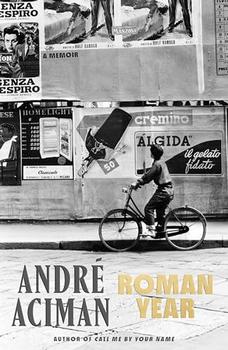
A Memoir
by Andre AcimanThe author of Call Me by Your Name returns with a deeply romantic memoir of his time in Rome while on the cusp of adulthood.
In Roman Year, André Aciman captures the period of his adolescence that began when he and his family first set foot in Rome, after being expelled from Egypt. Though Aciman's family had been well-off in Alexandria, all vestiges of their status vanished when they fled, and the author, his younger brother, and his deaf mother moved into a rented apartment in Rome's Via Clelia. Though dejected, Aciman's mother and brother found their way into life in Rome, while Aciman, still unmoored, burrowed into his bedroom to read one book after the other. The world of novels eventually allowed him to open up to the city and, through them, discover the beating heart of the Eternal City.
Aciman's time in Rome did not last long before he and his family moved across the ocean, but by the time they did, he was leaving behind a city he loved. In this memoir, the author, a genius of "the poetry of the place" (John Domini, The Boston Globe), conjures the sights, smells, tastes, and people of Rome as only he can. Aciman captures, as if in amber, a living portrait of himself on the brink of adulthood and the city he worshipped at that pivotal moment. Roman Year is a treasure, unearthed by one of our greatest prose stylists.
1 Please, Don't Hate Me
"And please, don't hate me. I'm no ogre," said my great-uncle Claude as he was about to walk out of our new apartment in Rome and head toward the stairway.
Standing at our door, Uncle Claude, or Claudio as he was known in Italy now, was quoting the very word his sister had used months earlier in Egypt when trying to gloss over ugly family rumors about him. "He has a very good heart, so stop thinking of him as an ogre," she'd say, looking straight at my brother and me and using a word drawn mostly from fairy tales. "Yes, he does have a bad temper, but think of him as impulsive—we're all a bit impulsive in our family, aren't we?" she'd add about the man we were to meet as soon as our ship reached Naples. "Impulsive" was a far more tactful way of describing a man whose bouts of seething rage were forever impressed in the memory of those who knew him. Aunt Elsa must have written to him from Egypt telling him that we were thoroughly terrified of meeting him.
By ...
Confessing how "I wouldn't know that I loved [Rome] or wanted to love it until I was about to lose it," Aciman channels tragic undercurrents in his narration. For him, the present, as it is occurring, seems to become automatically synonymous with a past that is never wholly retrievable; he feels the loss of people and places at the very same moment he experiences their currency, admitting to the paradox of "booking my passage back before making the journey out, seeking Italy while still in Italy." Though cavernous sadness often seeps into Roman Year, so does frenetic, localized energy and, eventually, tempered joy. Following the sights and sounds of Via Clelia, such as the market noise that is disruptive of his family's sleep for their first few weeks in Rome, Aciman fluidly enumerates the iconic and quotidian streets and locations traversed by foot, bicycle, and public transportation alone and with others, not only in Rome but also in Paris, where he sojourns twice over the course of the book...continued
Full Review
 (1152 words)
(1152 words)
(Reviewed by Isabella Zhou).
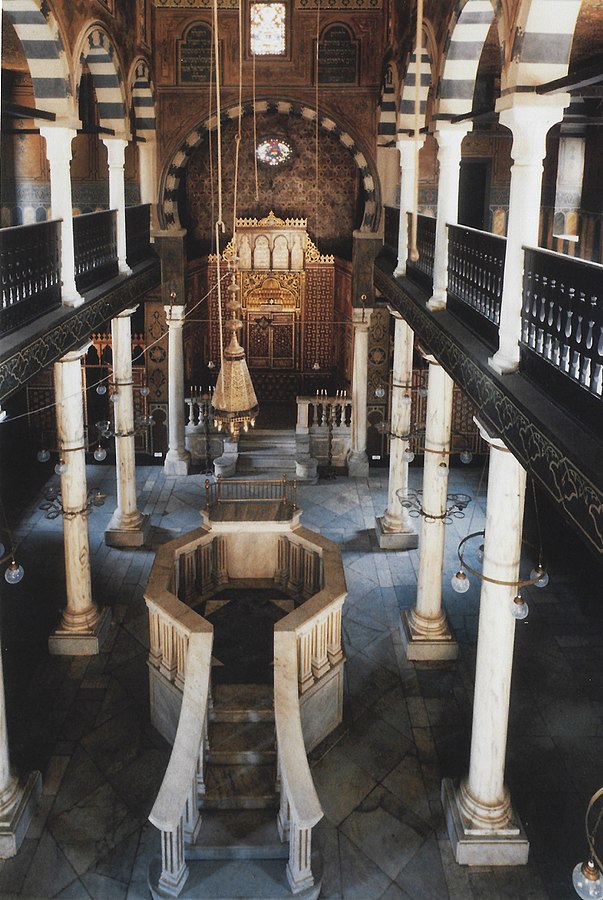 Throughout Roman Year, André Aciman repeatedly and explicitly references the political policies of President Gamal Abdel Nasser as responsible for his Jewish family's refugee status in Rome for the period of the memoir's titular year. The number of Jews in Egypt is estimated to have been 75,000 to 80,000 at its height in 1948. From there, the population declined in numerous waves, with a major one, which embroiled Aciman and his family, occurring in the 1950s and '60s and resulting from Nasser's campaign to expel the Jews from Egypt. Today the number of Jews in Egypt is nearly zero.
Throughout Roman Year, André Aciman repeatedly and explicitly references the political policies of President Gamal Abdel Nasser as responsible for his Jewish family's refugee status in Rome for the period of the memoir's titular year. The number of Jews in Egypt is estimated to have been 75,000 to 80,000 at its height in 1948. From there, the population declined in numerous waves, with a major one, which embroiled Aciman and his family, occurring in the 1950s and '60s and resulting from Nasser's campaign to expel the Jews from Egypt. Today the number of Jews in Egypt is nearly zero.
Corresponding to Israel's newfound independence in 1948 (the same year, as mentioned above, in which Egypt's Jewish population was at its ...

If you liked Roman Year, try these:
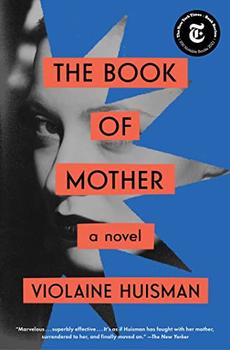
by Violaine Huisman
Published 2022
A gorgeous, critically acclaimed debut novel about a young woman coming of age with a dazzling yet damaged mother who lived and loved in extremes.
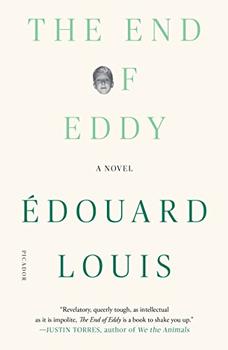
by Edouard Louis
Published 2018
An autobiographical novel about growing up gay in a working-class town in Picardy.
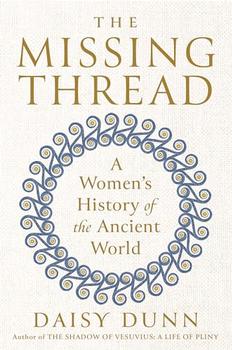





To limit the press is to insult a nation; to prohibit reading of certain books is to declare the inhabitants to be ...
Click Here to find out who said this, as well as discovering other famous literary quotes!